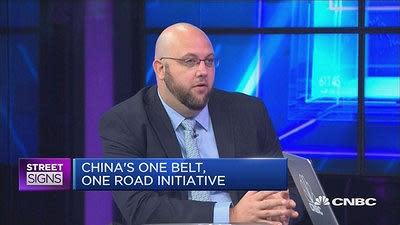Here's why China's 'Belt and Road' initiative is risky — think tanker

China's "One Belt, One Road" initiative is a brilliant strategic move, but it comes with serious risks.
That's according to Clyde Prestowitz, president of the Economic Strategy Institute, a Washington-based think tank.
"On one hand it will be a way of handling China's excess capacity and continue to create jobs with investment in China. Secondly, it creates a kind of a zone of influence for China," he said.
Announced back in 2013, the China's "new silk road," as it's commonly known, aims to connect Asia, Europe, the Middle East and Africa with a vast logistics and transport network.
To date, China has pledged over $100 billion to finance projects under the OBOR initiative, including the $46 billion China-Pakistan corridor and a high-speed railway connecting China and Singapore.
But, there are risks that come with China extending such huge credit lines.
In fact, Fitch Ratings has estimated around $900 billion in credit has been extended to the host countries where the risk of debt default is high like Ethiopia, Kenya and Sri Lanka.
Drawing comparisons to China's investment in Venezuela, Prestowitz said, "It's not going to be repaid. It's a total loss. I can foresee similar development in 'One Belt, One Road.'"
Some, however, see opportunity in the initiative.
Nick Coyle, executive director and CEO at the China-Australia Chamber of Commerce in Beijing, told CNBC, Australian companies still stand a chance to benefit from OBOR.
"There are good opportunities for Australian companies," he said.
"If you've got a company that is particularly experienced in a certain area… then I think there's really good opportunities to join with Chinese companies doing projects in those third countries," he added.
More From CNBC

 Yahoo Finance
Yahoo Finance 
